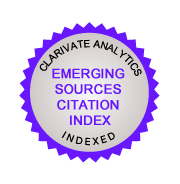Lípová 15, 120 44 Praha 2 | Email: kvas@beerresearch.cz | Tel.: +420 224 900 129 | Fax: +420 224 290 618
Kvasny Prum. 2014; 60(6): 146-150 | DOI: 10.18832/kp2014014
Plánování a řízení provozu pivovaru s podporou počítačové simulace.Recenzovaný článek
- Ústav automobilního a dopravního inženýrství, Fakulta strojního inženýrství, Vysoké učení technické v Brně, Technická 2896/2, 619 69 Brno
Plánování a řízení výrobního procesu pivovaru je z technologického i manažerského pohledu náročná úloha. Důvodem je množství procesních fází a jejich parametry (v závislosti na druzích vzniklých produktů a šíři výrobního portfolia) a technická omezení technologických zařízení (kapacita sil, objem tanků a filtračních nádrží, rychlost jejich plnění a vypouštění, čištění filtrů atd.), stejně jako provozní podmínky (disponibilita vstupních surovin, výrobních prostředků, směnový režim v částech výroby s podílem manuální práce, využitelnost plnicích linek, logistika skladování hotových produktů a další). Mnohé z těchto parametrů mají navíc stochastickou povahu (prostoje plnicích linek, fluktuace tržní poptávky apod.). Tento článek pojednává o způsobu, jakým lze celý proces výroby a stáčení piva plánovat a řídit s využitím počítačového modelu, a to od vstupu surovin až po sklad balených produktů. V úvodu je pojednáno obecně o související problematice diskrétních simulací výrobních procesů s cílem jejich optimalizace. Hlavní část článku představuje nadstavbu softwarového simulačního nástroje, pomocí kterého lze na základě tabelárně zpracovaných provozních údajů vygenerovat simulační model pivovaru. Prostřednictvím případové studie je dále demonstrována možnost provedení simulačních experimentů s cílem nalezení a odstranění úzkých míst výroby a zvýšení vytíženosti výrobních prostředků a tím i produktivity celého pivovaru. V závěru jsou shrnuty poznatky vztahující se k současné úrovni technologie simulace s ohledem na její využití v potravinářském průmyslu a pivovarství.
Klíčová slova: pivo, výroba piva, diskrétní simulace, simulační model, simulační experiment
Vloženo: 15. únor 2014; Přijato: 18. duben 2014; Zveřejněno: 1. červen 2014
Reference
- Banks, J., Carson, J., Nelson, B., Nicol, D., 2009: Discrete-event system simulation, Pearson Education, Upper Saddle River, N. J. ISBN 978-0-13-815037-2.
- Hloska, J., Štoček, J., 2013: Simulace zřetězení linky pro obrábění hřídelí, Automa, Vol.19, (2013), No.8-9/2013, pp.16-19, ISSN 1210-9592, FCC Public s. r. o.
- Klejnen, J. P., 2008: Design and analysis of simulation experiments, Springer, New York. ISBN 978-0-387-71812-5.
- Kmínek, M., Nachtigalová, I., Dostálek, P., 2013: Počítačové řízení minipivovaru VŠCHT Praha, Automa, 19(10): 9-12, ISSN 1210- 9592
- FCC Public s. r. o. Gläßer, J. F., 2011: Ereignisorientierte Simulation der Bierherstellung. Dostupné z: http://mediatum.ub.tum.de/doc/1081285/1081285.pdf. Dizertační práce. Technische Universität München, Lehrstuhl für Lebensmittelverpackungstechnik.
- Osofisan, P.B., 2007: Fuzzy Logic Control of the Syrup Mixing Process in Beverage Production. In: Leonardo Journal of Sciences. 11. vyd. Cluj-Napoca: AcademicDirect Publishing House, s. 93- 108. ISSN 1583-0233. Dostupné z: http://ljs.academicdirect.org/A11/093_108.htm
- Kühn, W., 2006: Digitale Fabrik - Fabriksimulation für Produktionsplaner. Hanser, München. ISBN 3-446-40619-0.
 Přejít k původnímu zdroji...
Přejít k původnímu zdroji... - VDA, 2014: VDA - Verband der Automobilindustrie. [online]. http://www.vda.de/de/index.html [cit. 2014-01-03].
- VDI 3633, Blatt 1, 2010: Simulation und Logistik-, Materialfluss- und Produktionssystemen, Grundlagen, Frankfurt: VDI - Gesellschaft Produktion und Logistik.
- VDI 4499, Blatt 1, 2008: Verband Deutscher Ingenieure, VDI-Richtilinie 4499, Blatt 1; Digitale Fabrik: Grundlagen, Februar 2008, Beuth Verlag GmbH.
- Versteegt, C., Verbraeck, A., 2002: The extended use of simulation in evaluating real- time control systems of AGVs and automated material handling systems, Proceedings of the 2002 SWC: 1659- 1666.






